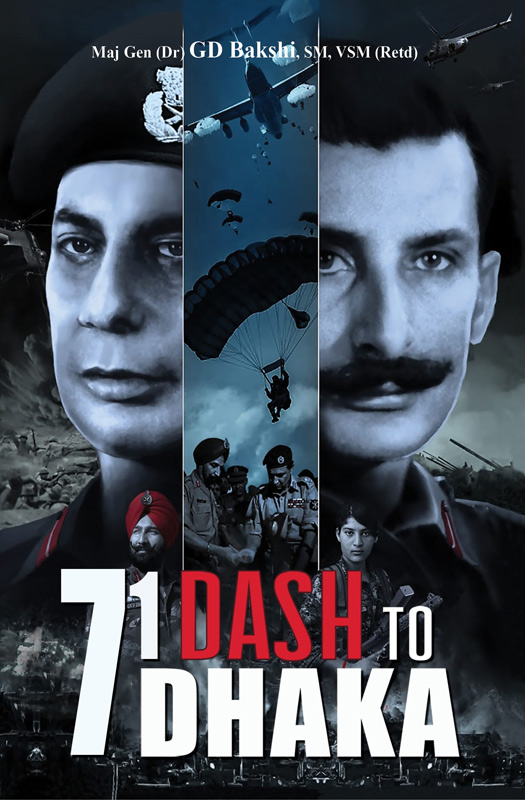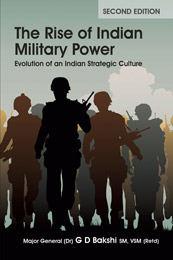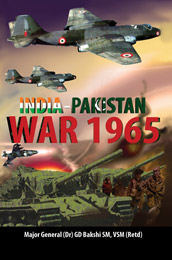Subjects
71 Dash to Dhaka
GD Bakshi
The 1971 war for the Liberation of Bangladesh was a landmark conflict in the history of South Asia. It dramatically changed the map of this region and marked a historical revival of Indian military power. In just 13 glorious and action packed days – three Indian corps sized spear heads raced for the capital city of Dacca. It was located in the most defensible, riverine terrain in the world. Yet the Indian Blitzkrieg bounced the wide rivers using Helicopters and Paradrops to speed up operations and paralyse the enemy command centre with precision air attacks. The India Air Force generated shock and awe over the battlefields of Bangladesh. Like an expanding torrent of water, the Indian Army bypassed all major centres of opposition in its race for Dacca. Meanwhile the Indian Navy blockaded East and West Pakistan and cut off the two wings of the country. Thus in 13 nail biting days the Indian forces marched on an enemy capital, enforced regime change and induced the largest mass surrender of forces. These were decisive results. This despite the American Seventh Fleet – led by the US aircraft carrier Enterprise, making menacing moves in the bay of Bengal. This is the behind the scenes account of that war – how the critical decisions were arrived at – what major risks were taken and the superb planning and coordination between all organs of the Indian state – political, military, diplomatic and intelligence. It was India’s finest hour. It unconsciously revived the Kautiliyan paradigm of war-fighting.


 Political Science
Political Science


